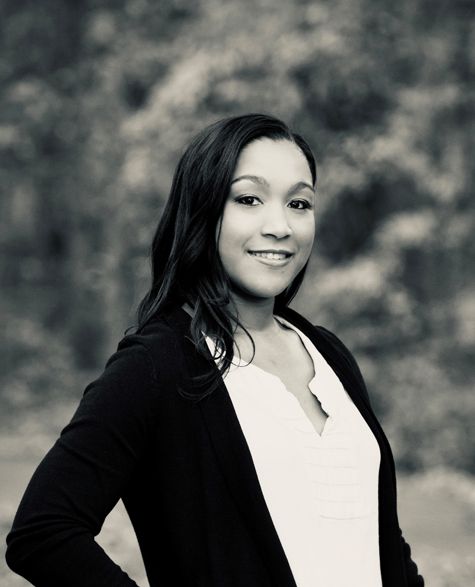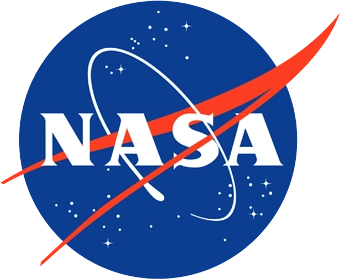Early Career Scientist Spotlight
Dr. Akiko Elders (she/her/hers)
Atmospheric/Biospheric Scientist
Biospheric Sciences Laboratory (618)
Tell us about the research project(s) you are currently working on.
The project I am currently working on uses a combination of remote sensing and Random Forest models to estimate crop type and yield of smallholder fields in Africa. We are collaborating with Millennium Challenge Corporation (MCC), which invests in Agricultural Development Projects in developing nations and is interested in determining new ways to better understand how well those investments are progressing and changing over time. Our goal is to understand how we can remotely evaluate their agricultural perimeters, classify the crops grown within them and determine how productive their fields are. The sizes of the fields we evaluate are small with heterogeneous land cover types. Therefore, the biggest challenge is finding the right satellite sensor, machine learning model, and high quality in situ data in order to make accurate predictions about the study area.
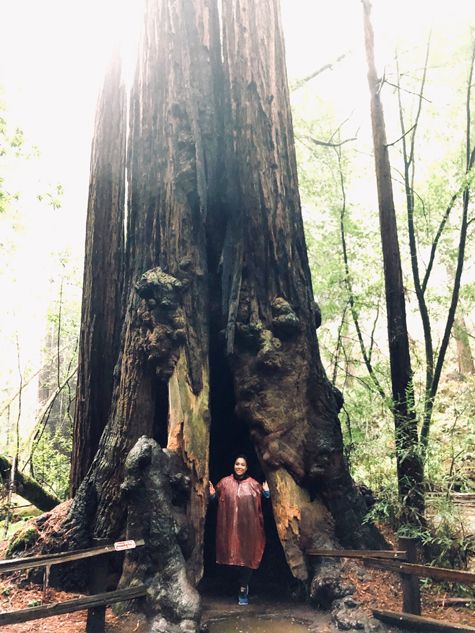
Credit: Akiko Elders
What inspired you to pursue a career in Biospheric Science?
I have always been interested in Earth Science. I can remember as far back as elementary school modeling the impact of global warming using fish tanks, a bright lamp and ice cubes. The inspiration really came from a passion for Earth Science and encouragement from my mom. This led me to pursue Environmental Science as an Undergraduate at the University of Maryland. There, I was the very first person to graduate with a degree in their sub specialty global environmental change, where I took classes in climatology, meteorology and geography, which ultimately inspired my degree in Climate Dynamics. As a part of the coursework, we would study and discuss the United Nations Intergovernmental Panel on Climate Change (IPCC) reports. Fascinated by the science, climate change impacts and research, I decided I did not just want to read about it, I wanted to research it too.
What research accomplishment are you most proud of?
I am most proud of finishing my PhD. I am the first in my family to complete a PhD and so that by itself can feel like such a huge accomplishment. I think what makes this milestone particularly special to me is that I completed a PhD with my son along for the ride. He was an infant for the majority of my dissertation research. I had to learn to balance research and childcare all at the same time. It made for an interesting two years of research and motherhood. I had a great support system though, both at home and at school with an amazing dissertation advisor, which was important for helping me with this huge achievement.
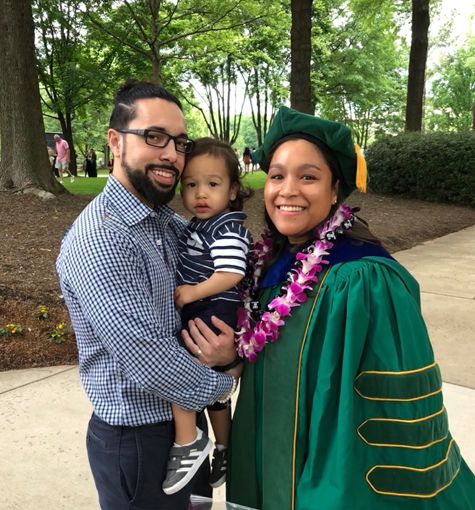
Credit: Akiko Elders
What skills are most useful to you in your work, and where did you develop those skills?
The ability to automate tasks and develop code are essential to what I do every day. I really refined this skill during my time at George Mason University while completing a PhD. To analyze climate datasets, you really have to be able develop multi-functional code to make sense of and evaluate your data. From then on, using code to complete tasks became second nature. Now any time I have something that needs to be completed the same way several times, I will usually write up a quick script to get the task done. While I’ve learned how to work in a number of languages, R is my go-to language. I always tell people interested in learning to code, find a language that fits the way you think, and, from there, you will be able to move between languages. After that, it is really just a difference in syntax!
What was your first big research achievement?
My first big research achievement would have to be my first author paper “Diagnosing sea ice from the North American Multi-Model Ensemble and implications on mid-latitude winter climate”. It all started as a learning exercise to explore model output. It evolved into much more. I went on to analyze sea ice extent representation among the models, the impact of sea ice decline on the atmosphere and even created a sea ice proxy for models that did not produce sea ice at the time. This project was a catalyst for what eventually became my dissertation research.
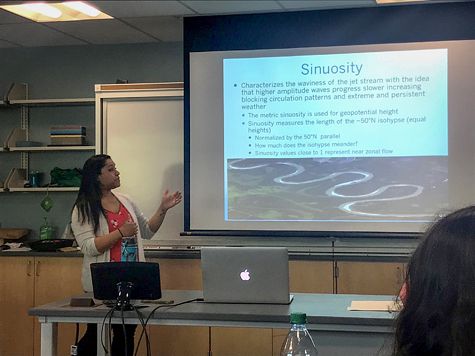
Credit: Akiko Elders
What advice would you give your younger self?
There are so many things I would tell my younger self. The most important advice would be not to be afraid of what you do not know or understand. The fear of not knowing something or thinking something is too hard can stop us from taking on some amazing opportunities to learn and grow. So when you encounter something that scares you the most, try it. You will be surprised just how much you can gain by taking a chance.
What is a fun fact about you?
One fun fact about me is that I love to run and I have completed two full Marathons, one of which poured rain the ENTIRE time! I started running back in 2012 as a fun and relaxing way to exercise. A good friend challenged me to a half marathon and I just kept going. There is something so satisfying about finishing a marathon because it is both physically and mentally challenging. The feeling of crossing the finish line after 26.2 miles is surreal.
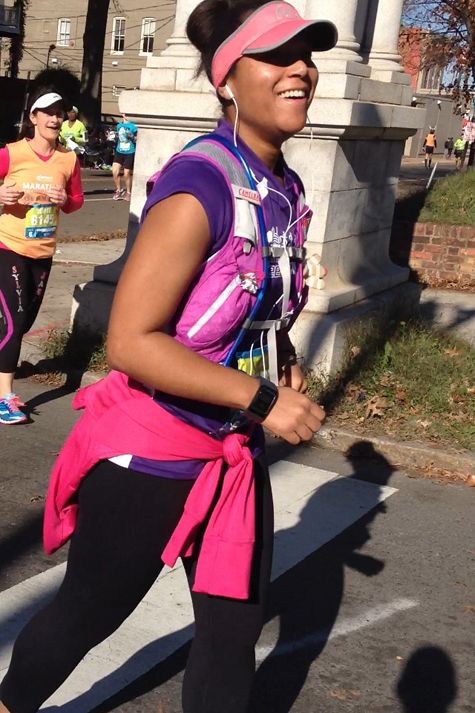
Credit: Akiko Elders
Biography
Home Town:
Sandy Spring, MD
Undergraduate Degree:
BS in Environmental Science, University of Maryland, College Park MD
Post-graduate Degrees:
MA in Geography, University of Maryland, College Park MD
PhD in Climate Dynames, George Mason University, Fairfax VA
